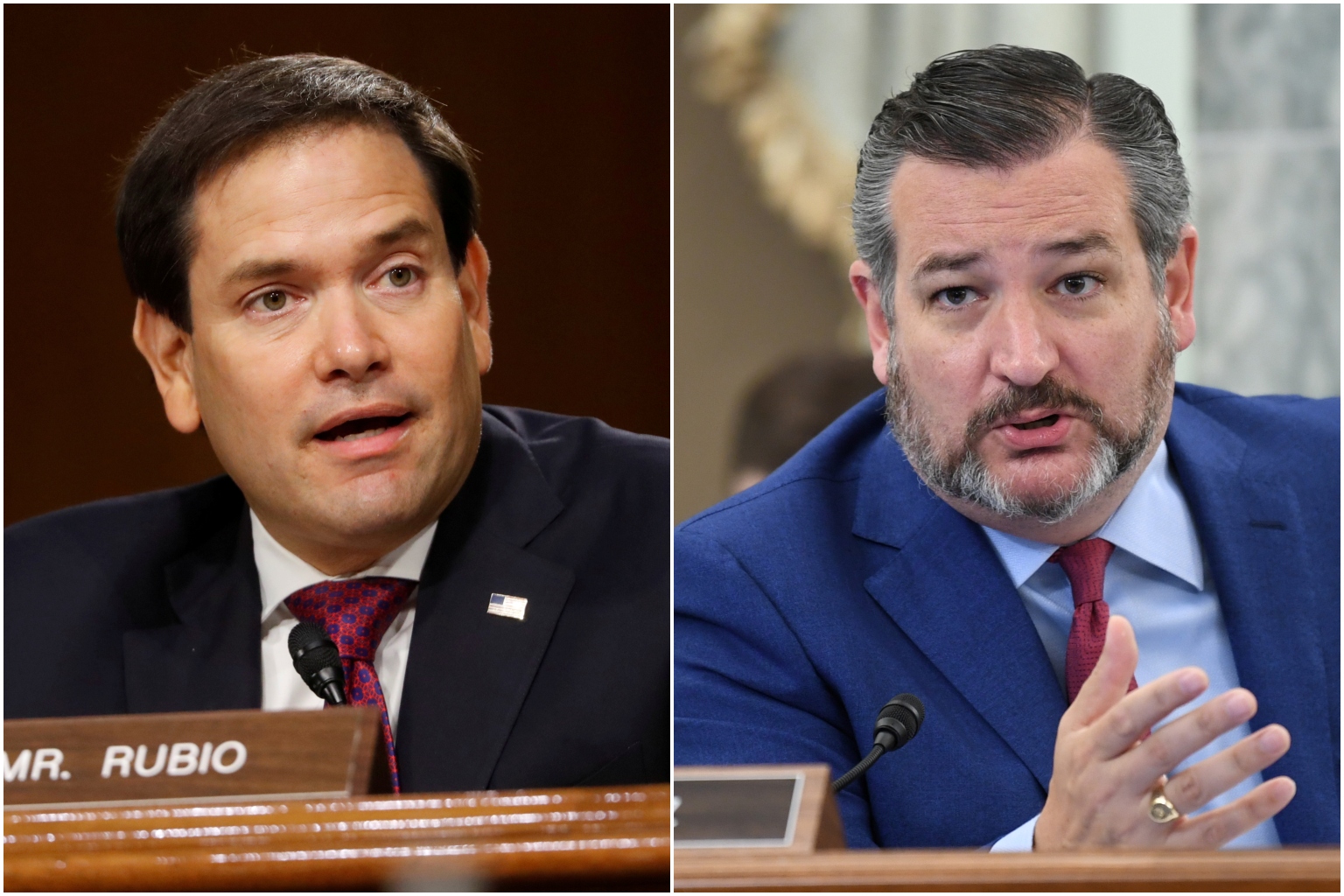China to sanction US Senators Marco Rubio, Ted Cruz over Xinjiang
Sign up now: Get insights on Asia's fast-moving developments

The sanctions against US Senators Marco Rubio (left) and Ted Cruz will begin on July 13, 2020.
PHOTOS: REUTERS
Follow topic:
BEIJING (BLOOMBERG, REUTERS) - China announced sanctions against United States officials including Senators Marco Rubio and Ted Cruz, in a largely symbolic retaliation over legislation intended to punish Beijing for its treatment of ethnic minorities in the Xinjiang region.
Chinese Foreign Ministry spokesman Hua Chunying said "sanctions" against the four officials would begin Monday (July 13), without elaborating.
Ms Hua listed Mr Rubio and Mr Cruz - both Republicans and high-profile critics of China - as targets of the unspecified measures, in addition to Mr Sam Brownback, Representative Chris Smith and the Congressional-Executive Commission on China.
The commission monitors human rights and the development of the rule of law in China and submits an annual report to US President Donald Trump and Congress.
The moves come three days after the US sanctioned a top member of China's ruling Communist Party and three other officials over alleged human rights abuses in Xinjiang, located in the country's far west.
"The US actions seriously interfere in China's internal affairs, seriously violate the basic norms of international relations and seriously damage Sino-US relations," Ms Hua told reporters during a daily briefing. "China will make further responses based on how the situation develops."
Beijing has repeatedly vowed retaliation over US actions intended to support residents of Xinjiang, Hong Kong and Taiwan, accusing Washington of inappropriately interfering in China's internal affairs.
The sanctioned individuals include Mr Chen Quanguo, the Xinjiang party secretary who sits on the 25-member Politburo, as well as Mr Zhu Hailun, party secretary of the Xinjiang Political and Legal Committee, and the current and former directors of the Xinjiang Public Security Bureau, the Treasury Department said last Thursday.
Both the US moves and Chinese response were largely symbolic, since both groups of officials were unlikely to have much financial or legal exposure to each other's countries.
The American decision marked the first time the US has sanctioned a sitting Chinese official under the 2016 Global Magnitsky Human Rights Accountability Act, which gives the US broad authority to impose human rights sanctions on foreign officials.
Senior administration officials had been pushing for the sanctions for months but were stymied by Mr Trump, who fretted that they would complicate his US-China trade deal.
UN experts and activists say at least a million ethnic Uighurs and other Muslims are held in detention centres in Xinjiang.
China describes them as training centres helping to stamp out terrorism and extremism and give people new skills.

